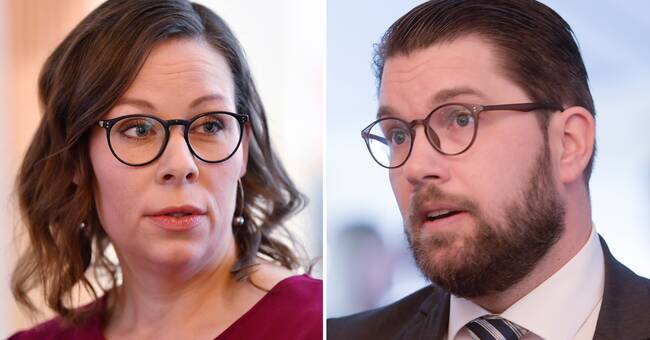Jimme Åkesson's tweet on Thursday afternoon has resulted in sharp criticism from several party leaders.
In the aforementioned proposal, the Sweden Democrats' party leader demands a total stop to all asylum and relative immigration, which he believes constitutes "a social, cultural or economic burden".
- I do not think you should talk about people in the form of stress.
But it is obvious that we have major problems with integration.
I believe that a very strict immigration policy is needed to be able to meet the integration problems, says Maria Malmer Stenergard, the Moderates' migration policy spokesperson.
Opened up for collaboration
She believes that the policy Jimmie Åkesson expresses in the mentioned tweet is not feasible.
- Jimmie Åkesson says that in practice he wants to stop immigration and I perceive that it is something that is not possible to implement, as the regulations look today, she says.
Ulf Kristersson (M) has previously opened up for cooperation with the Sweden Democrats on, among other things, migration policy.
In SVT's "30 minutes", Kristersson reported as recently as the end of January that he thinks that the Sweden Democrats have changed their rhetoric and become more serious in their political work.
Welcome explanation
According to Maria Malmer Stenergard, the content of Thursday's tweet goes against the line that Jimmie Åkesson and the Sweden Democrats have previously pursued.
- It would have been welcome if the Sweden Democrats explained what immigration policy they actually want to pursue and how it is anchored in the rules that we have to follow.
"Am surprised"
How do you view the statement based on a possible collaboration with the Sweden Democrats?
- The policy that the Sweden Democrats pursued in the migration committee is a policy that I think we could cooperate on, when it comes to the migration issue.
That is why I am surprised that he now expresses a completely different policy that would violate international conventions and which in practice would not be possible to implement
,
says Maria Malmer Stenergard.

